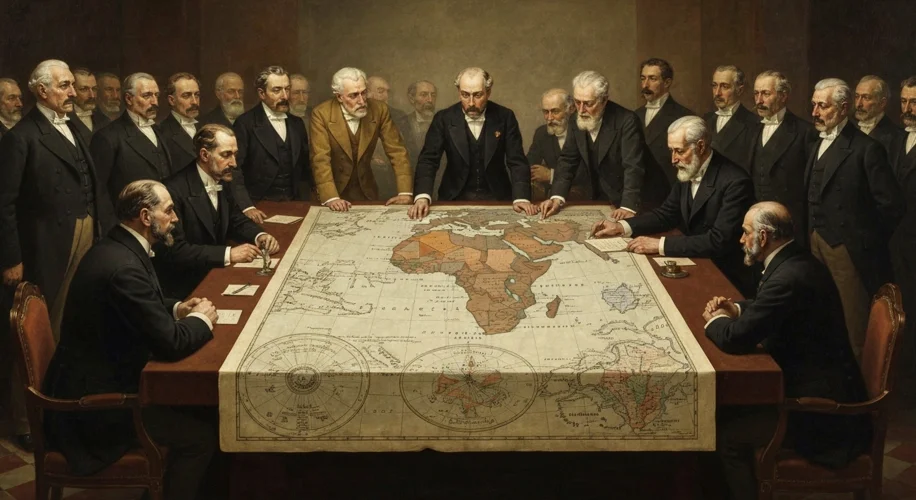The year is 1884. The air in Berlin is thick with cigar smoke and the scent of ambition as Europe’s great powers gather. They are not here to celebrate peace or share scientific discoveries. Instead, they are about to divide an entire continent – Africa – amongst themselves, like a feast laid out for hungry predators. This was the genesis of the Scramble for Africa, a period of intense, often brutal, colonization that would irrevocably alter the course of history for millions.
Before this era, European influence in Africa was largely confined to coastal trading posts. The vast interior remained largely unknown and unmapped by the Europeans. However, by the late 19th century, a confluence of factors ignited a feverish race for African territories. The industrial revolution in Europe had created an insatiable demand for raw materials – rubber, diamonds, gold, ivory, and later, oil – that Africa seemed to possess in abundance. These resources were the lifeblood of European factories, powering their burgeoning economies and fueling their global dominance.

Beyond economic motivations, political and social factors played crucial roles. Nationalism was at its zenith, and acquiring colonies became a potent symbol of national prestige and power. Owning vast territories across the globe was seen as proof of a nation’s superiority and its right to rule. Countries like Britain, France, Belgium, Germany, Portugal, Italy, and Spain all vied for supremacy, each eager to outmaneuver the other. There was also the pervasive belief in the ‘civilizing mission’ – a paternalistic and often racist ideology that posited Europeans had a duty to bring their culture, religion, and governance to what they perceived as ‘backward’ peoples.
Key figures emerged during this period, their actions shaping the continent’s destiny. King Leopold II of Belgium, through his personal ambition and brutal exploitation of the Congo Free State, became a chilling example of the era’s rapaciousness. His regime, driven by the insatiable demand for rubber, inflicted unimaginable suffering on the Congolese people. In Britain, figures like Cecil Rhodes dreamed of a British empire stretching from ‘Cape to Cairo,’ envisioning a vast interconnected network of colonies that would solidify British dominance.
The actual process of colonization was rarely a simple negotiation. European powers often used a combination of military force, diplomacy, and deception to secure treaties and establish control. The Battle of Adwa in 1896, where Ethiopian forces under Emperor Menelik II decisively defeated an Italian invasion, stands as a remarkable, albeit rare, instance of successful African resistance against a European colonizing power. However, for most of the continent, the story was one of subjugation.

The consequences of the Scramble for Africa were profound and continue to resonate today. The arbitrary drawing of colonial borders, often disregarding existing ethnic and cultural boundaries, sowed the seeds for future conflicts. Millions of Africans were subjected to forced labor, stripped of their land, and their cultures were systematically undermined. Traditional political structures were dismantled, replaced by colonial administrations that served European interests. The extraction of resources depleted the continent’s wealth, leaving many nations struggling economically long after independence.
Furthermore, the psychological and social impacts were devastating. Generations grew up under foreign rule, internalizing the narratives of inferiority imposed by their colonizers. The legacy of racism and discrimination, embedded within colonial structures, proved remarkably resilient.
The Scramble for Africa was not merely a historical event; it was a pivotal moment that reshaped the global political and economic landscape. It exposed the raw ambition and the darker side of European imperialism, a stark reminder of how the pursuit of power and profit can lead to immense human suffering. Understanding this period is crucial for comprehending the complexities of Africa’s present and its ongoing journey toward self-determination and prosperity.


